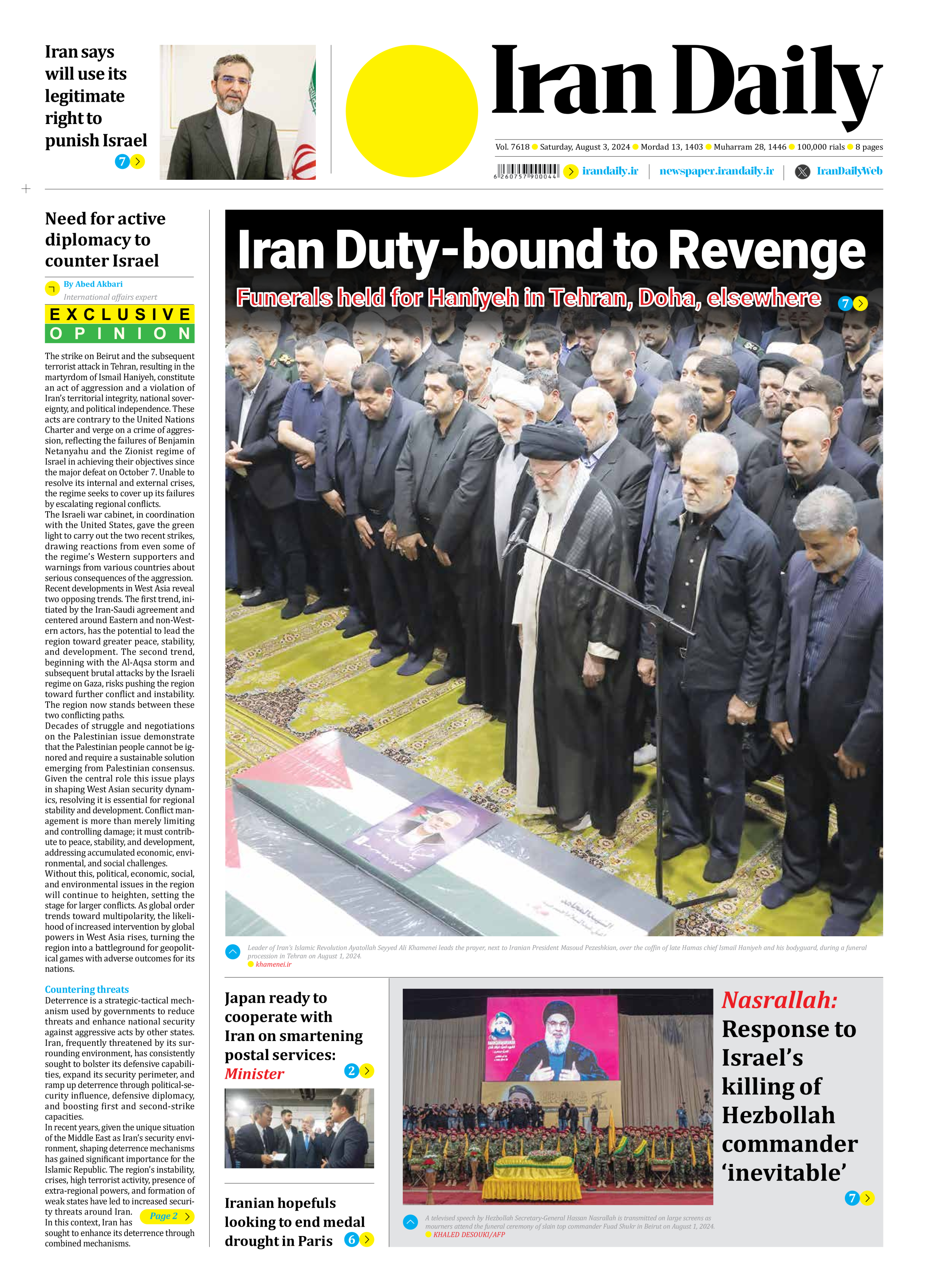
Need for active diplomacy to counter Israel
By Abed Akbari
International affairs expert
The strike on Beirut and the subsequent terrorist attack in Tehran, resulting in the martyrdom of Ismail Haniyeh, constitute an act of aggression and a violation of Iran’s territorial integrity, national sovereignty, and political independence. These acts are contrary to the United Nations Charter and verge on a crime of aggression, reflecting the failures of Benjamin Netanyahu and the Zionist regime of Israel in achieving their objectives since the major defeat on October 7. Unable to resolve its internal and external crises, the regime seeks to cover up its failures by escalating regional conflicts.
The Israeli war cabinet, in coordination with the United States, gave the green light to carry out the two recent strikes, drawing reactions from even some of the regime’s Western supporters and warnings from various countries about serious consequences of the aggression.
Recent developments in West Asia reveal two opposing trends. The first trend, initiated by the Iran-Saudi agreement and centered around Eastern and non-Western actors, has the potential to lead the region toward greater peace, stability, and development. The second trend, beginning with the Al-Aqsa storm and subsequent brutal attacks by the Israeli regime on Gaza, risks pushing the region toward further conflict and instability. The region now stands between these two conflicting paths.
Decades of struggle and negotiations on the Palestinian issue demonstrate that the Palestinian people cannot be ignored and require a sustainable solution emerging from Palestinian consensus. Given the central role this issue plays in shaping West Asian security dynamics, resolving it is essential for regional stability and development. Conflict management is more than merely limiting and controlling damage; it must contribute to peace, stability, and development, addressing accumulated economic, environmental, and social challenges.
Without this, political, economic, social, and environmental issues in the region will continue to heighten, setting the stage for larger conflicts. As global order trends toward multipolarity, the likelihood of increased intervention by global powers in West Asia rises, turning the region into a battleground for geopolitical games with adverse outcomes for its nations.
Countering threats
Deterrence is a strategic-tactical mechanism used by governments to reduce threats and enhance national security against aggressive acts by other states. Iran, frequently threatened by its surrounding environment, has consistently sought to bolster its defensive capabilities, expand its security perimeter, and ramp up deterrence through political-security influence, defensive diplomacy, and boosting first and second-strike
capacities.
In recent years, given the unique situation of the Middle East as Iran’s security environment, shaping deterrence mechanisms has gained significant importance for the Islamic Republic. The region’s instability, crises, high terrorist activity, presence of extra-regional powers, and formation of weak states have led to increased security threats around Iran. In this context, Iran has sought to enhance its deterrence through combined mechanisms.
Page 2







